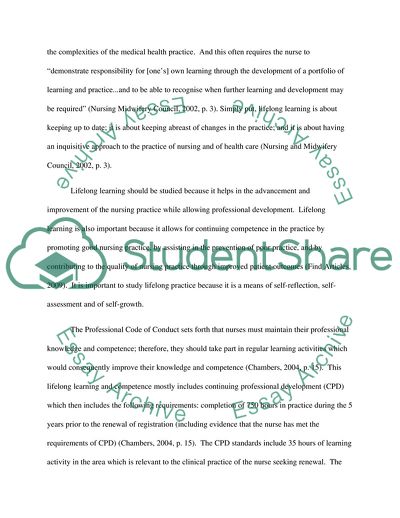Cite this document
(Lifelong Learning and Personal Development in Nursing Coursework, n.d.)
Lifelong Learning and Personal Development in Nursing Coursework. Retrieved from https://studentshare.org/nursing/1730683-lifelong-learning
Lifelong Learning and Personal Development in Nursing Coursework. Retrieved from https://studentshare.org/nursing/1730683-lifelong-learning
(Lifelong Learning and Personal Development in Nursing Coursework)
Lifelong Learning and Personal Development in Nursing Coursework. https://studentshare.org/nursing/1730683-lifelong-learning.
Lifelong Learning and Personal Development in Nursing Coursework. https://studentshare.org/nursing/1730683-lifelong-learning.
“Lifelong Learning and Personal Development in Nursing Coursework”, n.d. https://studentshare.org/nursing/1730683-lifelong-learning.


